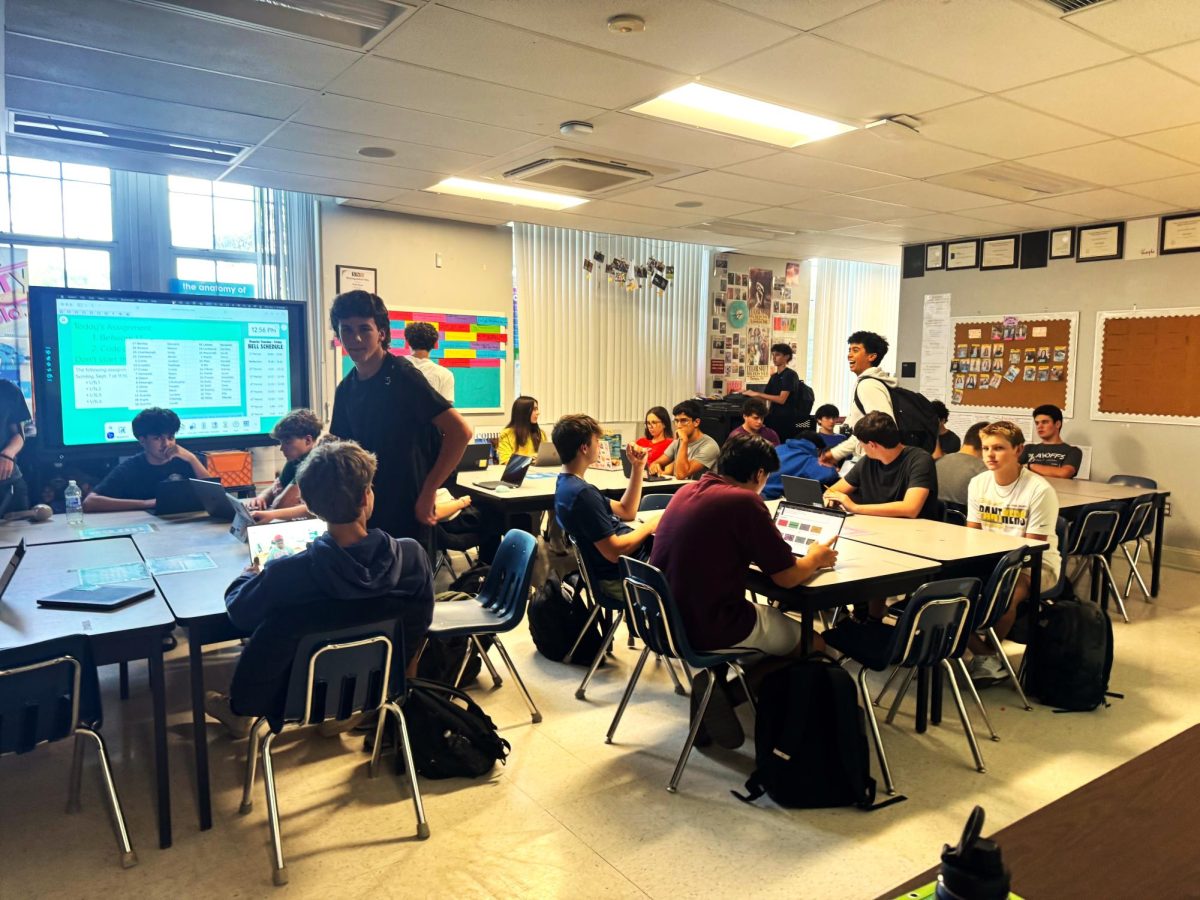As the new school year is in full swing, students are getting adjusted to their classes and fall routines. For juniors, however, this also often includes Advanced Placement (AP) class workloads, balancing school with extracurricular activities and preparing for the SAT or ACT. While all years of high school present their own challenges, junior year can be particularly crucial for students planning to attend college. It’s one of their last chances to strengthen their academic standing and make a positive impression before submitting applications next fall.
Plant specifically offers a wide range of APs you can start as a junior, including AP Environmental Science (APES), AP United States History (APUSH), AP Biology, AP English Language and Composition (AP Lang), AP Psychology, AP Capstone: Research and Seminar, and AP European History (AP Euro). Furthermore, all the following had a total passing rate of 69% or above according to the College Board’s 2025 score distribution.
While the pass rates are encouraging, each AP course comes with its own expectations and challenges inside the classroom. The level of difficulty often depends on the workload, the teacher’s approach, and a student’s strengths or interests.
To see what this looks like, Ava Dordevic (11) shared her experience with junior year so far. “I take four AP classes currently. My favorite is AP Lang because I enjoy writing, and I think that’s one of my strong suit subjects,” she said.
“The one I find the hardest is AP Euro,” Dordevic continued, “because even though it is interesting, there is a lot of information I need to remember.” She added, “I do have some concerns about balancing school during my junior year. An example is staying on top of my classes while studying for the SAT, as it is a lot of pressure all at once.” Dordevic concluded, “A study method that best helps me is rewriting notes and trying to memorize them.”
Annabelle Weed (11) also elaborated on her junior year. “I’m taking three AP classes this year. My favorite is AP Lang because I really like Mr. Keen, and he makes the class fun and engaging,” she explained.
“AP Bio has definitely been the hardest for me,” Weed continued, “since there’s so much to memorize and the tests can be really complicated.” She added, “On top of that, I worry about preparing for the SAT, but I use Quizlet a lot to help me study and stay on track.”
Seniors who have already completed junior year often offer a different perspective. Aidan Cunningham (12) shared his experience: “During my Junior year, I took APUSH, AP Psychology, and AICE General Paper. Out of the three, I thought APUSH was the hardest because of the dense and broad material that had to be memorized over a long period of time, although Mr. Carbon was a great teacher.”
“My favorite class was AP Psychology,” Cunningham added, “I enjoyed Mrs. Tallbacka, and I hope to become a psychologist one day. I would recommend AP Psychology to juniors because it’s on the easier side of the AP selection, and the exam is enjoyable to study for.”
He explained his study habits: “For study skills, I used flashcards consistently. My biggest piece of advice for juniors is to stay dialed in and not let yourself slip.” Cunningham also described how he balanced his workload: “I used a research period during the school day to complete my homework and finished the rest at night.” He concluded, “Moving into senior year, I’ve found it’s important to be more communicative with teachers.”
Junior year has the potential to bear many responsibilities for students, which can lead to stress. However, Charlie Health and other resources suggest that paying attention to both your mental health and schoolwork, rather than neglecting one for the other, is more likely to lead to success. Some ways you can prioritize your well-being include exercising regularly, discussing your problems with peers, and even taking occasional self-care days.
High School often comes with high demands, but students have support available to help manage their responsibilities. Plant provides resources such as guidance counselors, free tutoring sessions before and after school, and Melissa Sigmon, the new Academic Success Coach, is available to help students succeed in their classes in whatever way they need. By leveraging these resources and staying organized, juniors can effectively navigate the challenges of this critical year while maintaining their personal academic goals.

